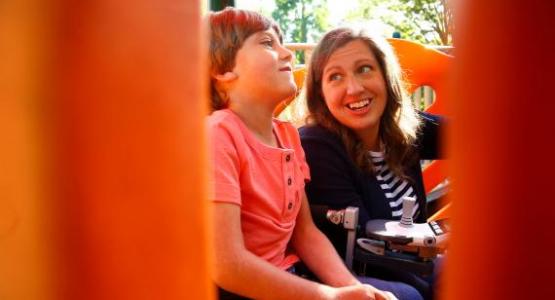
July/August 2019 Feature: From Stroke to Keystroke
For many people, the internet and social media are platforms to show an idealized version of themselves and rack up likes, hearts and emojis. But when Jessica Sims and other members bravely shared their struggles with the realities of life, they found meaningful connections, heartfelt prayers, much-needed support and opportunities to witness.
Story by Tompaul Wheeler
Quincy's Quest
When Jessica Sims gave birth to Quincy, her third son, in 2013, all seemed well. Then he started seizing. He was flown to Pittsburgh, where doctors determined he’d had a stroke shortly before his birth.
The stroke affected 60 percent of Quincy’s brain. “He was given a very grim prognosis,” Jessica remembers. “We didn’t post anything online right away, but people were praying for us, and I feel like it was those prayers that kept us going.”
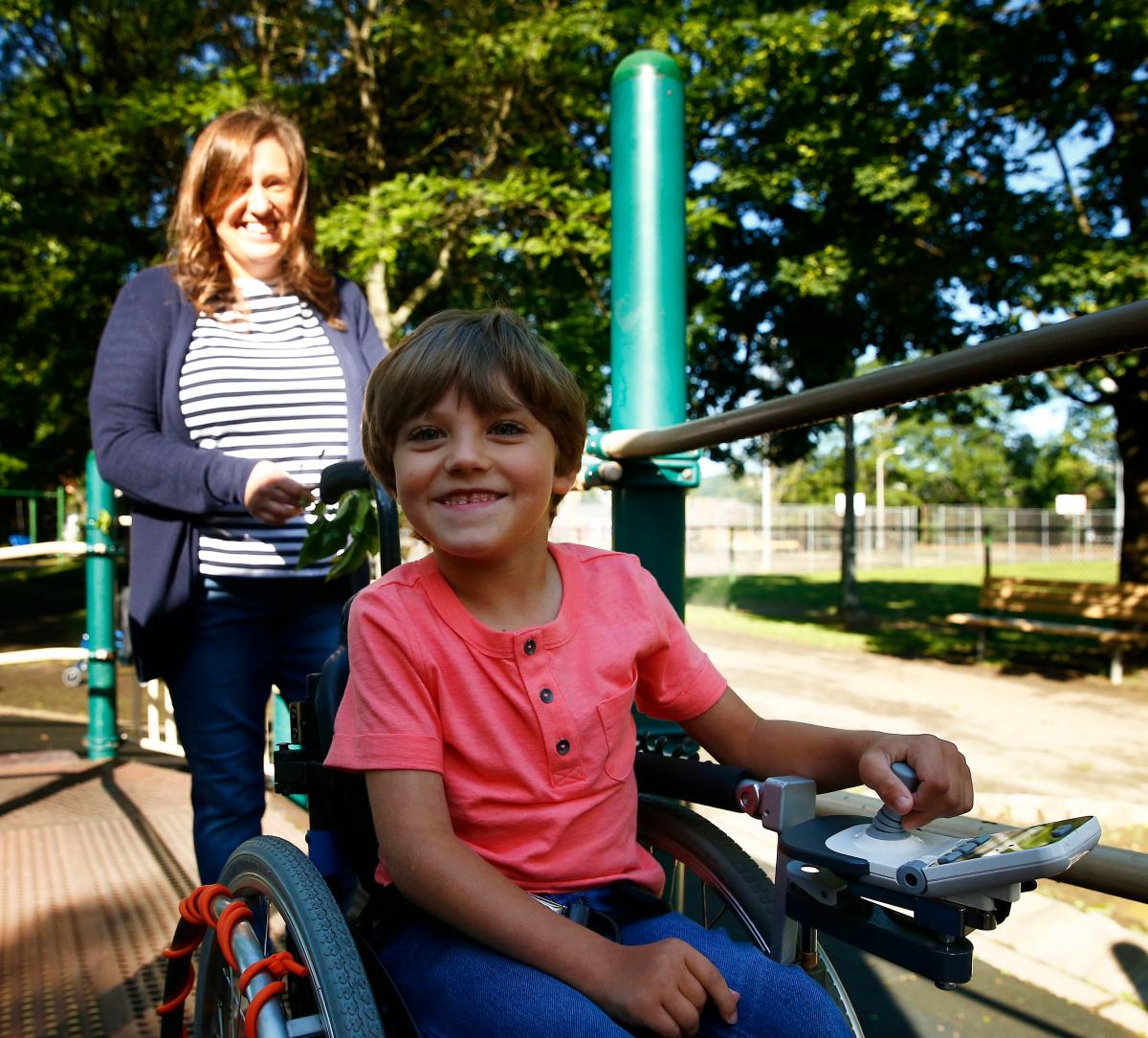 Given the severity of Quincy’s stroke, doctors were surprised he had lived through it. A genetic marker had predisposed Quincy to blood clots. “His MRIs kind of take my breath away,” Jessica says. “It looks like a yin-yang. His whole left side [brain activity] is completely gone, and his frontal lobe is gone from the stroke.” The unaffected portion of Quincy’s brain has demonstrated incredible neuro-plasticity, as it adapts and reassigns neurons to compensate for what was damaged.
Given the severity of Quincy’s stroke, doctors were surprised he had lived through it. A genetic marker had predisposed Quincy to blood clots. “His MRIs kind of take my breath away,” Jessica says. “It looks like a yin-yang. His whole left side [brain activity] is completely gone, and his frontal lobe is gone from the stroke.” The unaffected portion of Quincy’s brain has demonstrated incredible neuro-plasticity, as it adapts and reassigns neurons to compensate for what was damaged.
“We had our life planned out, and God had other plans,” Jessica reflects. “I had to quit my fulltime teaching job to care for Quincy. We had been very comfortable, and we went from that to relying 100 percent on God for everything. Doctors told us he wouldn’t live 10 days, and he’s just celebrated his sixth birthday. They told us he’d be blind and deaf and would never walk or sit on his own. And just three months ago, he started being able to walk independently with a walker. He can see on the left side of both of his eyes. He has compensated amazingly. His hearing is exceptional.”
Though Quincy occasionally stutters in his speech “when his brain can’t keep up with what he wants to say,” he’s continuing to progress in that and other areas. “He can voice what he wants. He can have a whole conversation," Jessica says.
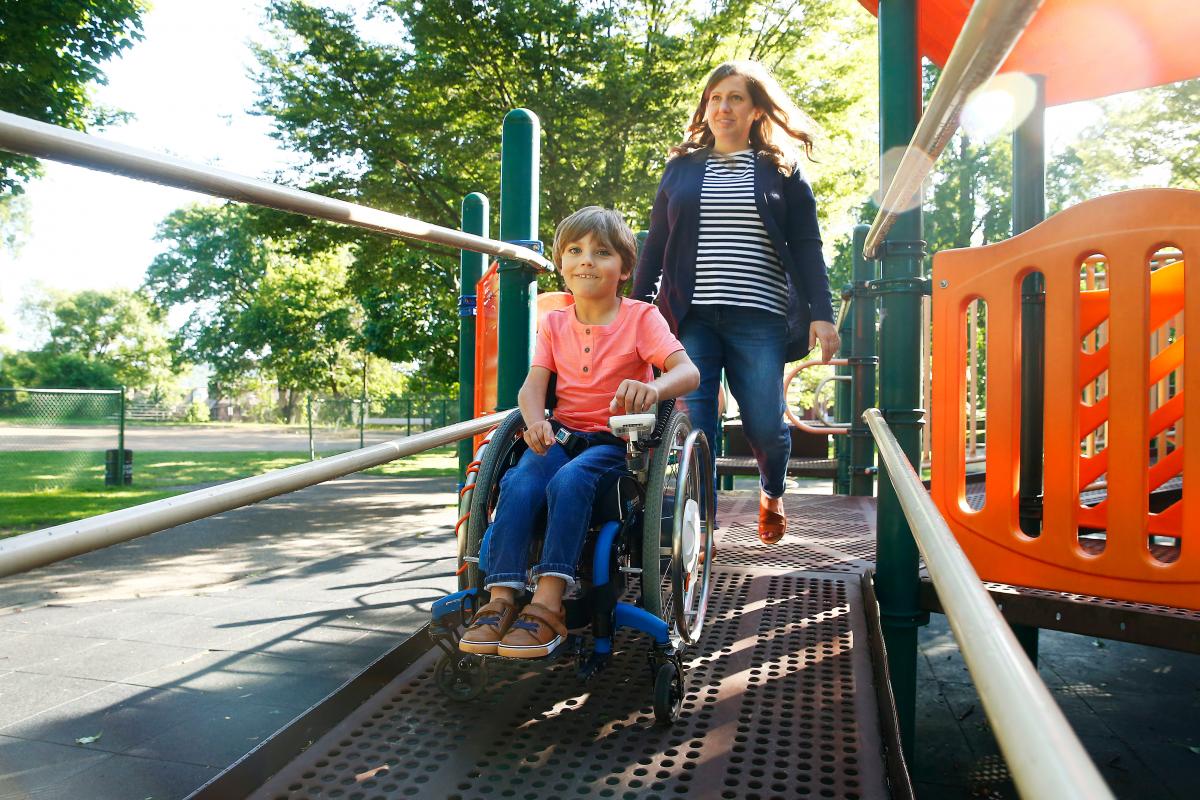 This summer they’re headed back to Pittsburgh for eight weeks of physical therapy, with the goal of building his strength and endurance so he can participate in a full-day kindergarten program and interact with his peers.
This summer they’re headed back to Pittsburgh for eight weeks of physical therapy, with the goal of building his strength and endurance so he can participate in a full-day kindergarten program and interact with his peers.
Jessica and her husband, K. C., have primarily shared their story through Facebook, on a page called Quincy’s Quest. “Of course I keep some things private for the sake of Quincy and my two older sons,” Jessica says. “The doctors and science said Quincy wouldn’t live, but obviously God had another plan. We always try to make sure people know that we feel God intervened.”
The family’s decision to share their journey online has both raised awareness of pediatric strokes and plugged them into a broader community. “We’ve received a tremendous amount of support from people saying, ‘Hey, if you need anything, I’m here.’ It’s that sense of community you might not otherwise have gotten if it weren’t for social media.
For the Sims family, who attend the Pennsylvania Conference’s Everett church, sharing their story online is a two-way street. “One of the things my husband and I said early on,” Jessica reflects, “is that of course we didn’t want this [illness] for Quincy; we didn’t want our lives turned upside down. But our son has a very bubbly personality. People are drawn to him. I definitely think God has worked through him.”
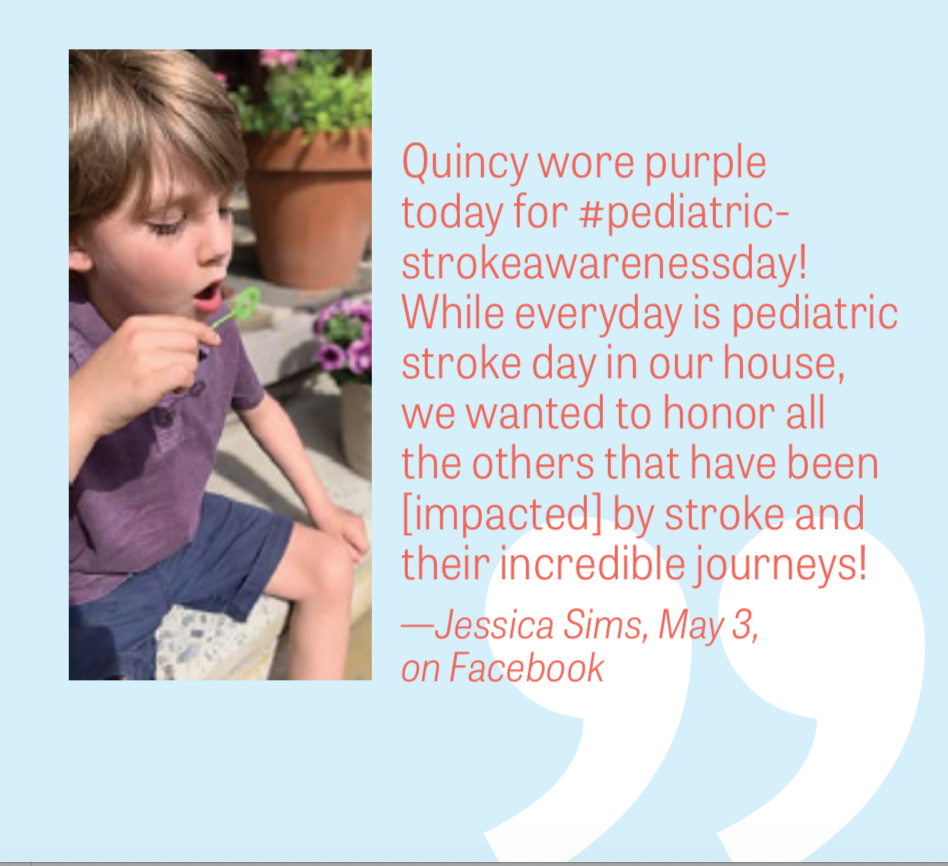 The Sims value how social media enables them to share and connect, especially when Quincy’s therapy separates them for weeks at a time. “Even 20 years ago, I wouldn’t have been able to quickly share a video with my family,” Jessica says. “It’s a blessing
The Sims value how social media enables them to share and connect, especially when Quincy’s therapy separates them for weeks at a time. “Even 20 years ago, I wouldn’t have been able to quickly share a video with my family,” Jessica says. “It’s a blessing
to me to know I’m not out in Pittsburgh by myself. I know there are people rooting for us and caring for us. And of course meeting other parents who are going through similar things. ... I see [social media] as a way of connecting with people, or people who might not otherwise be able to say, 'Hey I've been praying for you.' I know if I needed anything all I'd need to do is send a quick message or Facebook post, because people are there for you."
For Season Cromwell, sharing her journey with authenticity has been a part of her from the beginning.
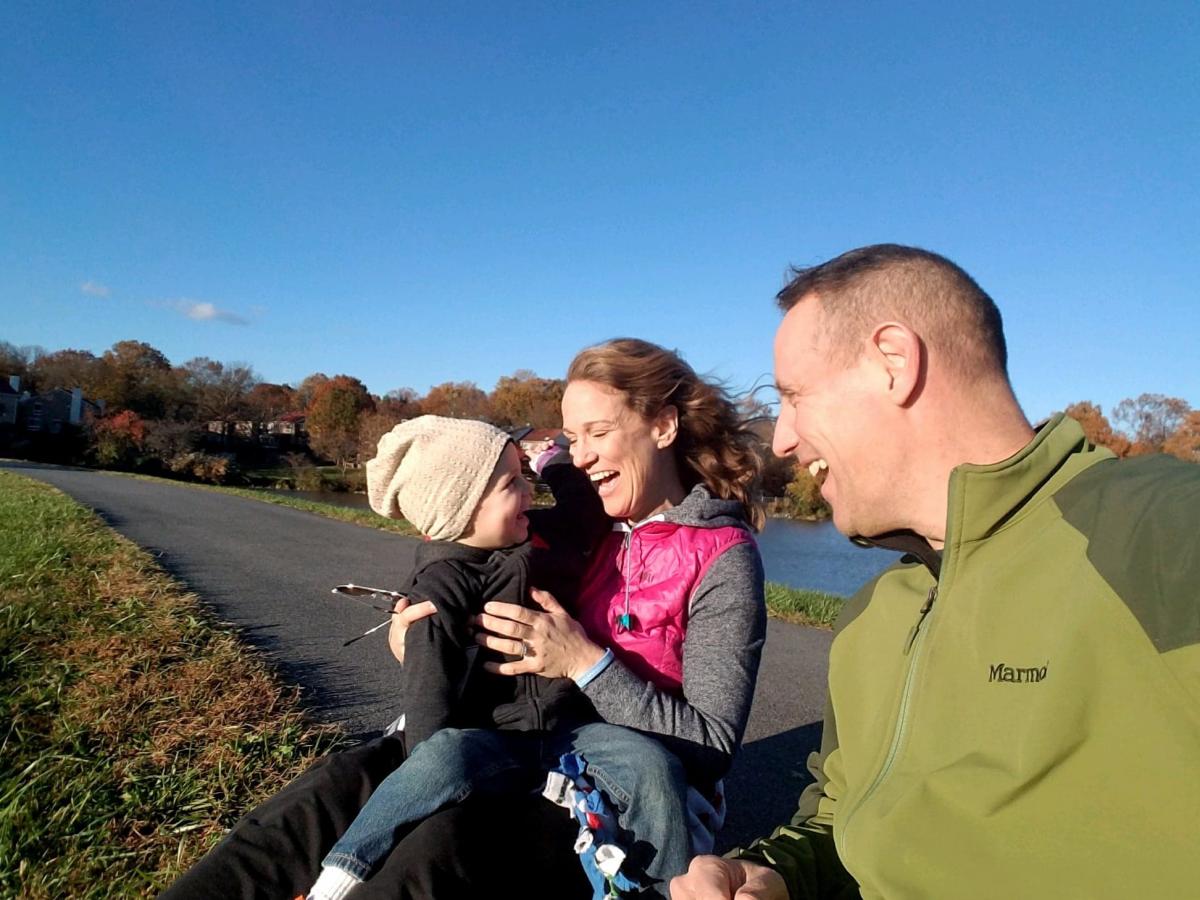 “I was just a couple weeks sober when I became an Adventist,” Cromwell remembers. “I spoke differently, I couldn’t sit still in a room. I went to the most conservative church in the conference in my area, and people told me, ‘You might want to pick a different one because I’m not sure they can handle your story.’ [My experience] was the complete opposite—and I think it was because I was sharing my story. There were folks who struggled with me because I’d sit down and start clapping [in church]. But praise Jesus, there was a large group who surrounded me—pastor, youth pastor, ladies—and loved me back to life.”
“I was just a couple weeks sober when I became an Adventist,” Cromwell remembers. “I spoke differently, I couldn’t sit still in a room. I went to the most conservative church in the conference in my area, and people told me, ‘You might want to pick a different one because I’m not sure they can handle your story.’ [My experience] was the complete opposite—and I think it was because I was sharing my story. There were folks who struggled with me because I’d sit down and start clapping [in church]. But praise Jesus, there was a large group who surrounded me—pastor, youth pastor, ladies—and loved me back to life.”
Today Cromwell attends Chesapeake Conference’s New Hope church in Fulton, Md., and is co-host of the television program “Let’s Pray” on the Hope Channel. Although following God has transformed every aspect of her life for the better, she still faces struggles, sorrow and disappointment—and is still determined to be gen- uine and honest about her life. One part of her journey she’s chosen to share—including on her Facebook and Instagram pages—are her struggles with infertility, miscarriage and her son’s injury during childbirth.
When Cromwell’s son Gideon was born in 2016, he suffered a brachial plexus injury on his left side. From his shoulder to his finger tip, nothing moved. At seven days old, Season and her husband, Chris, had Gideon anointed. That night his thumb twitched. Two surgeries—a nerve graft, and a shoulder repair with a tendon repair—have helped Gideon recover strength and movement.
“He’s doing wonderfully,” Season says. “God continues to amaze us.”
Season has a heavy heart, however, for those who continue to face such challenges in darkness. “A friend of mine runs a brachial plexis support group on the internet. There are people from all over the planet, and they say, ‘No one ever told me why my child’s arm didn’t work.’ And by then it’s too late to take some of the steps to help their child heal. That’s devastating to me. My friend [posts] videos and education on what to do and how to help their children.”
After a difficult experience with infertility, this spring the Cromwells rejoiced to learn that they were expecting another baby, and shared the good news on Season’s Facebook page, while asking for continued prayers. “I’m committed to our community to share our entire journey this second time around,” Season said at the time of the interview for this article. “For three hours after I posted, I wanted to take it down. There are some things I’m sacrificing so others can see. And if this pregnancy, heaven forbid, something should happen, I will post it as well. That’s the point—it’s a messy journey. It doesn’t have a neat bow on the end for everybody.”
Season explains, “Infertility and miscarriage is one of the biggest clubs nobody wants to be a part of. When I was first going through it, there was no way I could share it. It was hard to post that we had a positive pregnancy test because there’s so much stigma about sharing your pregnancy early. In other countries, people share about pregnancy early so [friends] can support and celebrate. Then if something happens, we cry with you and love and support each other.”
Soon after the interview, that something happened.
Season looks to Paul’s words in Galatians 6:2 for guidance: “Carry each other’s burdens, and in this way you will fulfill the law of Christ” (NIV). The Bible also says God desires “truth in the inward parts” (Ps. 51:6, NKJV). Season admits, “That’s the ugly stuff too.”
She continues, “Sometimes when we’re not honest with the things we’re struggling with, people feel like you’re trying to deceive them. Like, ‘Why didn’t you tell us?’ As opposed to someone who just walks in and says, ‘Hey guys, I need help.’ And I think there’s a part [of] the person to be honest for people to have a loving and kind response about it. But I feel like if we are open about our struggles, it builds a sense of community because it’s a fact that we’re not the only ones. That’s not even a question. If you’re breathing, you’re dealing with something.”
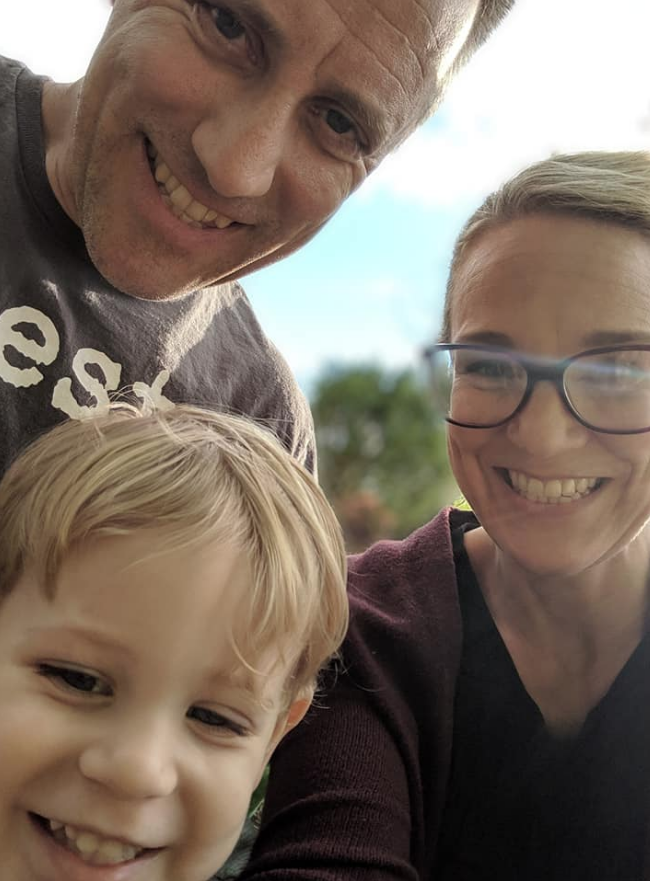 Though the sharing has sometimes been difficult, Season feels this is a calling. “I’m sure some people think ‘she’s telling everyone all her business,’ but that’s okay because that means what I’m sharing isn’t for them. They’re not the tribe I’m trying to reach. I don’t need everybody to like it or agree with it. I’m doing what the Lord told me to do, and I’m putting it out there because I’m being obedient. ... The enemy wants us to feel like we’re isolated and we’re the only ones struggling. He wants us to feel ashamed. ... There is just so much to be said about the community that we provide for each other.”
Though the sharing has sometimes been difficult, Season feels this is a calling. “I’m sure some people think ‘she’s telling everyone all her business,’ but that’s okay because that means what I’m sharing isn’t for them. They’re not the tribe I’m trying to reach. I don’t need everybody to like it or agree with it. I’m doing what the Lord told me to do, and I’m putting it out there because I’m being obedient. ... The enemy wants us to feel like we’re isolated and we’re the only ones struggling. He wants us to feel ashamed. ... There is just so much to be said about the community that we provide for each other.”
Season has felt a little pushback to her sharing.“I had someone tell me you really shouldn’t try to help others until you’ve already been through it and can look back at it. And I thought, No, absolutely not. God’s given me a bit of a platform, and I feel it’d be a disservice to not share.”
She also notes that there is a difference between dumping and sharing online, but says that counseling has helped her to “move through with stuff so that when I do share, it’s to build community, not to lament so others will feel sorry for me.” She says to ask yourself before posting, “‘Is it solution-oriented? Have you had a conversation with someone and you know they’ve taken it to Jesus first?’ All the weight of their emotions is just dumped in your lap if they haven’t.”
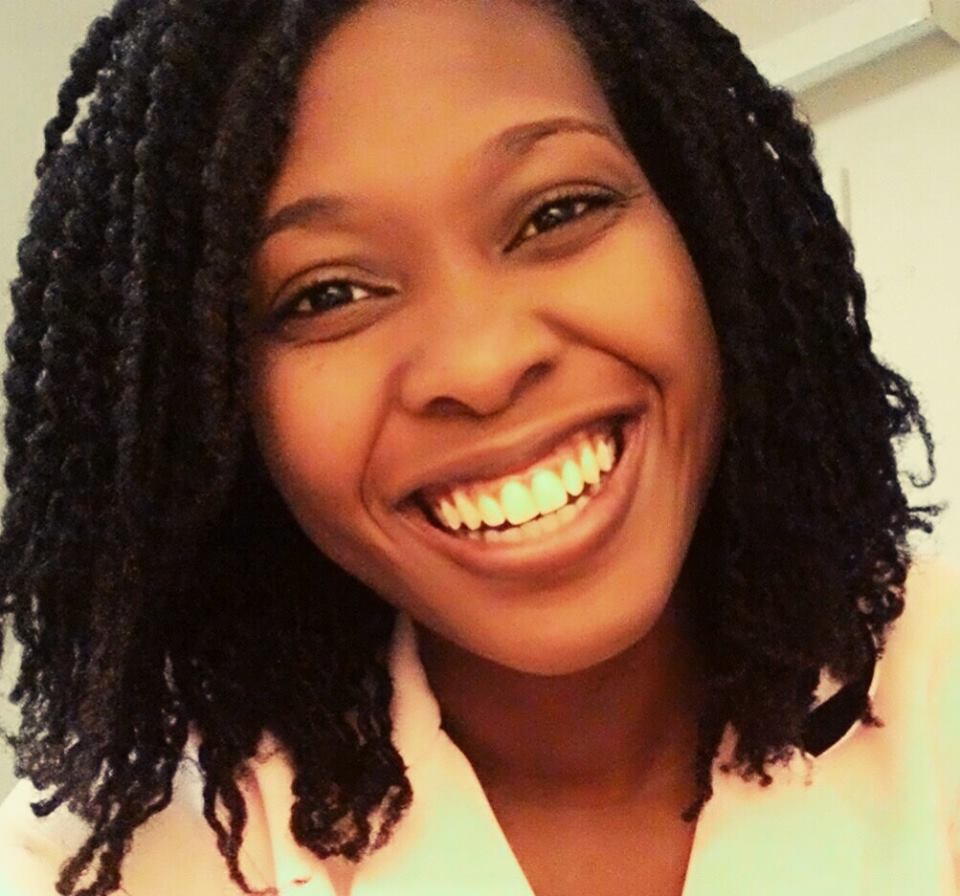 “Social media has now blurred the lines of boundaries of what is intimate,” says Felecia Datus of the Center for Online Evangelism, an independent ministry supporting the Seventh-day Adventist Church. They provide members with resources to act as “digital evangelists” who effectively share their faith online.
“Social media has now blurred the lines of boundaries of what is intimate,” says Felecia Datus of the Center for Online Evangelism, an independent ministry supporting the Seventh-day Adventist Church. They provide members with resources to act as “digital evangelists” who effectively share their faith online.
Datus says that sharing online can be a witness.
“It gives an opportunity for people to see that Jesus Christ is able to help us with whatever the struggle is. It doesn’t paint Christianity in a false light, as if once you become [a Christian] everything is perfect and dandy, and every day is sunny. Rather, as a Christian, you still have struggles, but you know a Savior who can walk with you through those struggles. It makes you more relatable, and you can say, ‘Hey, they’re going through this, and I can still relate to them. And because they’re going through this struggle, I won’t feel judged.’”
Datus also sees the negative effects. “Not everyone on social media will be kind regarding your struggles,” she says. “People will take advantage of it, so we need grace and the wisdom of the Holy Spirit to know the kind of things to share.”
She adds that engaging in so much social media sometimes takes away from our ability to communicate in person. “At the same time, we are aware of things happening in the world [in] real time and we can engage in that, and we have a lot of power ... to say things and stand up for things. We need to learn how to turn that online power into something tangible.”
Social Media a Ministry Tool?
Heather Ripley Crews pastors Potomac Conference’s Courthouse Road church in Richmond, Va. She’s found social media valuable in helping her keep in touch with what’s going on in her members’ lives and in connecting with her church community. “I’ll find out that they lost someone or [have] a challenge in their life, or they’ll share something on Facebook before they’ll share it with me. It’s sometimes easier to say it online than it is to someone’s face,” she says.
Crews adds, “How I learn people’s backstories has changed quite a bit over the years. I think the healthy part of it is that it’s actually being said. Sometimes you don’t understand what someone’s sharing until you hear the backstory. [We find] more people that share the same issues. [But] I wish we had more face-to-face conversations that didn’t have to start with, ‘Oh, I saw your Facebook post.’”
Crews then sometimes takes the opportunity to build from there. “If we’re going [to] be naming these issues, then we need to follow-up with a real-life conversation,” she says.
There is also an opportunity for churches to minister online. On Facebook alone, Chesapeake Conference’s New Hope church has an average of 500-plus viewers who watch their streamed services each week. Pennsylvania Conference’s Bucks County church has 80–250 weekly viewers and Allegheny West Conference’s Grace Community church in Euclid, Ohio, reaches 1,300-plus users with their sermons, inspiring quotes, etc.
We Need Support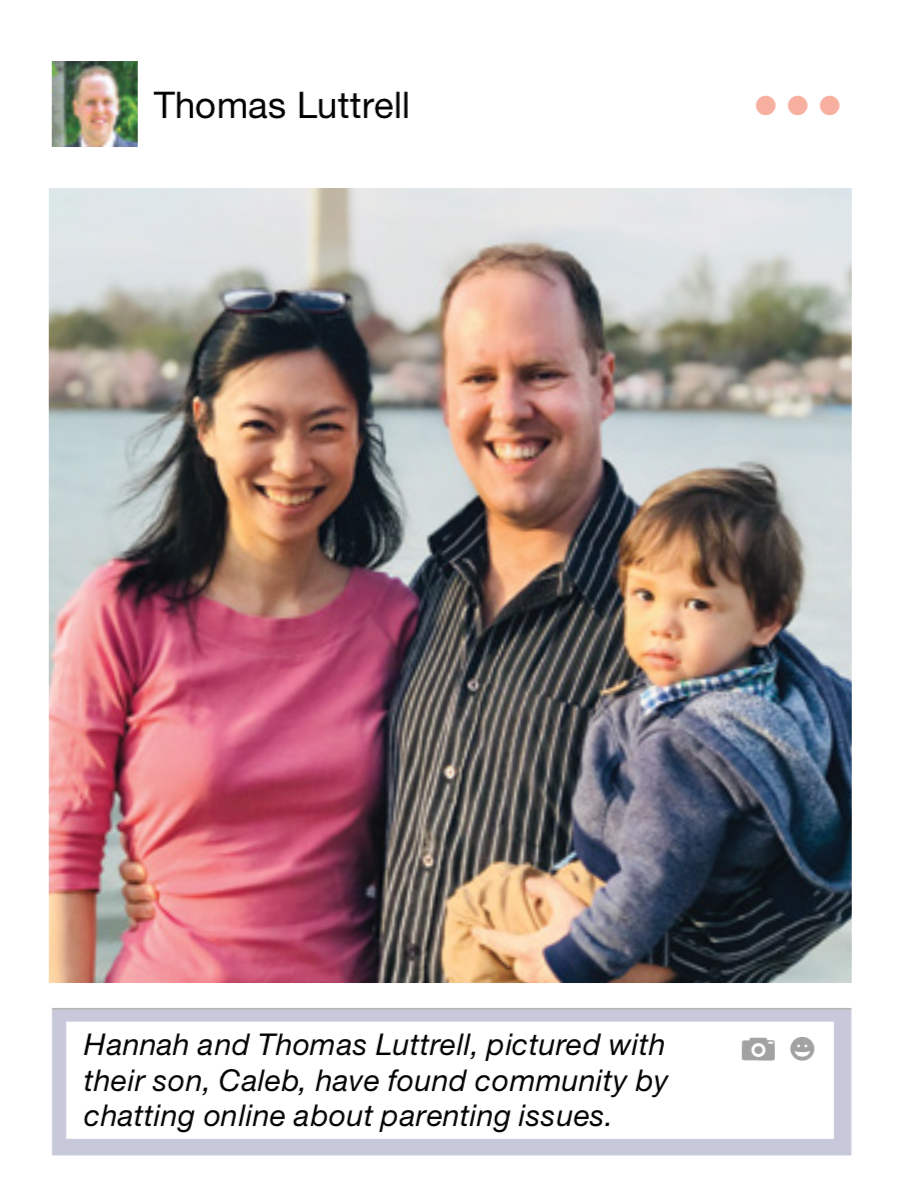 Thomas Luttrell, who has a doctorate in Marriage and Family Therapy, teaches psychology and counseling at Washington Adventist University in Takoma Park, Md. After the birth of their son, Caleb, he and his wife, Hannah, started participating in online support groups for new parents, and has found they have their strengths and weaknesses.
Thomas Luttrell, who has a doctorate in Marriage and Family Therapy, teaches psychology and counseling at Washington Adventist University in Takoma Park, Md. After the birth of their son, Caleb, he and his wife, Hannah, started participating in online support groups for new parents, and has found they have their strengths and weaknesses.
“The problem with any lay-led group is you’ll have people expressing [potentially]
nonprofessional opinions,” he says. But, “Sometimes people with all the training in the world don’t give the best advice. Sometimes they’re not as encouraging as [someone] who has ... had a similar experience.”
Luttrell, who has also served as a pastor, says one temptation people have is “when they see someone they think is attention-seeking is to ignore them or be condescending. The reality is that when people seek attention, it’s because they need attention or [don’t] get enough. They have a real need in their lives,” he says. “I think we can be helpful in getting people what they need. ... People need love, they need support.”
A Need to Grieve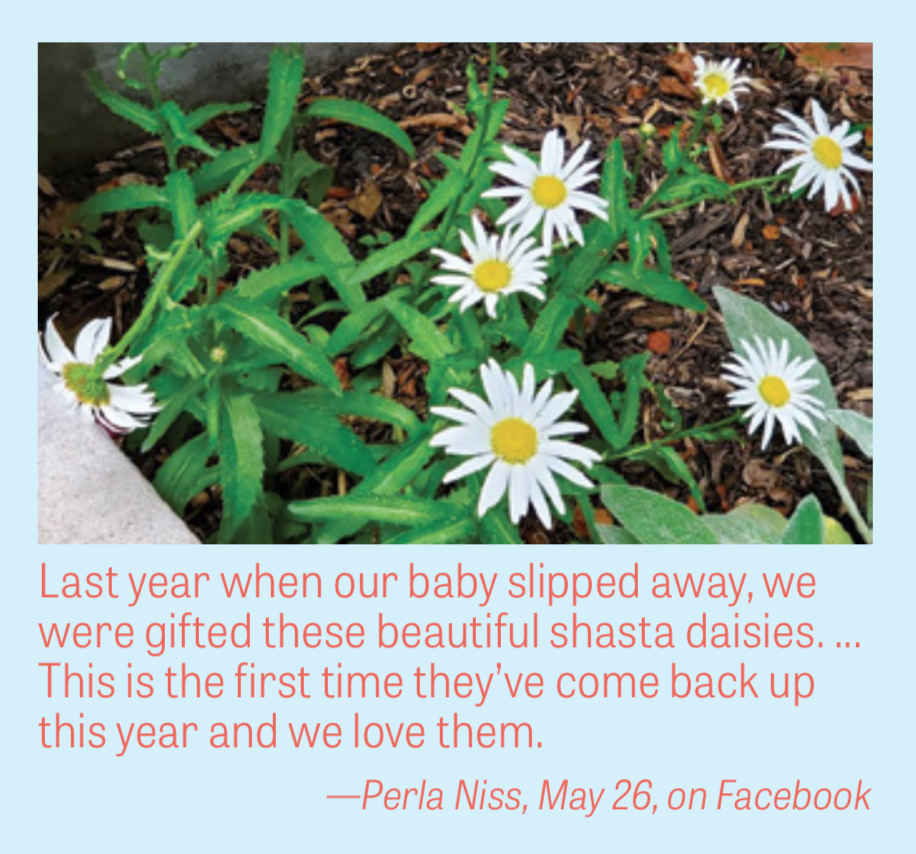 In February 2018, Hector and Anissa Perla, who attend several churches in the Washington, D.C., area, were equal parts shocked and thrilled to learn that they were expecting their first child. They felt God had called them to begin a ministry and a family. Throughout the first trimester, they kept the news to themselves. Then, in the twelfth week, the pregnancy ended in miscarriage.
In February 2018, Hector and Anissa Perla, who attend several churches in the Washington, D.C., area, were equal parts shocked and thrilled to learn that they were expecting their first child. They felt God had called them to begin a ministry and a family. Throughout the first trimester, they kept the news to themselves. Then, in the twelfth week, the pregnancy ended in miscarriage.
“Two weeks later, my last living grandparent passed away,” Anissa remembers. “It was a horrible, dark time in our life. I remember thinking, I need to grieve and just let my opinions out. I wanted to take it to another level in terms of sharing with other women and men. Miscarriages happen more often than we think; it’s [approximately] 1 in 4 women. We don’t talk about it. It’s like a sad, secret society.”
Anissa candidly posted her story on her and Hector’s ministry website—project126.org—sharing about her miscarriage. “I wanted to be open and candid about how God worked in our lives, that I have hope in Christ,” she says. “I know there are many women who suffer in silence. So many people responded. A lot of
Adventists [told me], ‘This is me: I’ve lost three babies. I’ve lost one. Thank you for sharing this. We need to speak about it more.’”
Anissa reflects, “There are many things we go through that we feel completely alone [in] because no one else talks about it, whether it’s a sin or a tragedy. There’s value in speaking up and offering that support to others. The silver lining is that I’ve now been invited to speak to groups of women and churches, or just a simple conversation with someone privately, offering support so they can move forward.” The Perlas also use their social media voices to educate and help organize immigration education events.
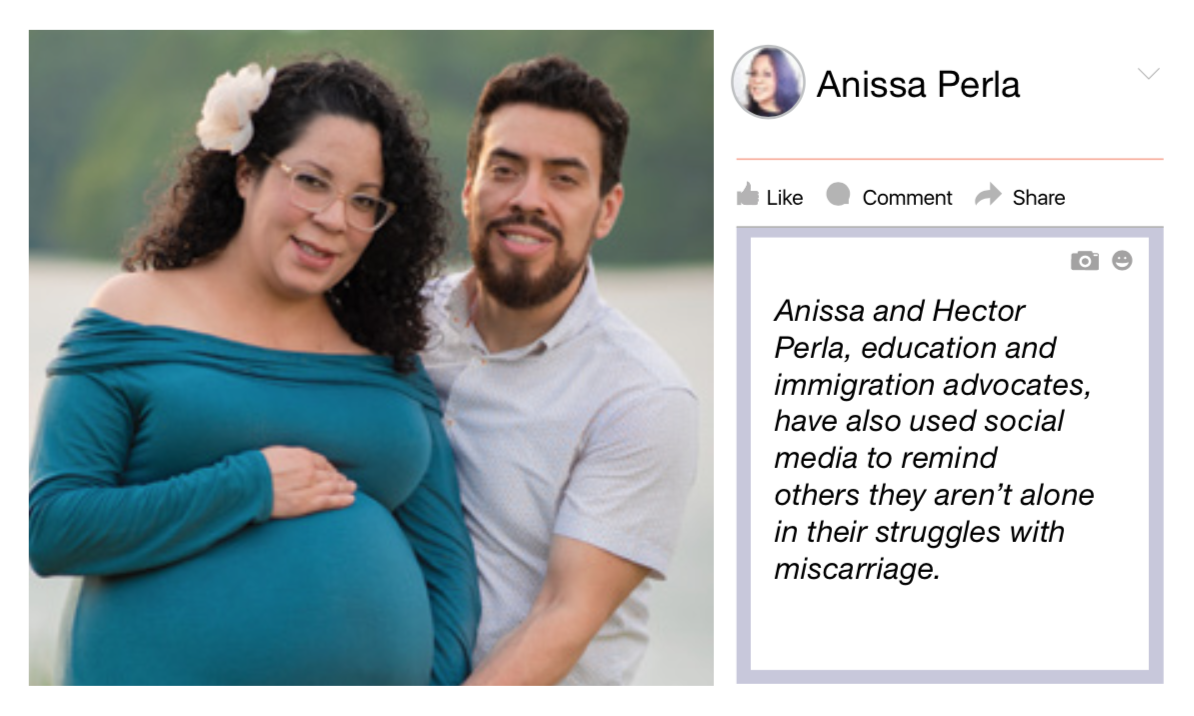 When Anissa and Hector announced that she was pregnant again, they were blessed with an outpouring of support. “Because of my being so open, when we announced we’re pregnant now, so many people have prayed for us and been there for us,” Anissa says. “I don’t think we would have received that much spiritual support if we’d just stayed quiet and suffered alone. Prayer is the best gift anyone can give you. ... When the baby is born, we’ll still have people praying for us.
When Anissa and Hector announced that she was pregnant again, they were blessed with an outpouring of support. “Because of my being so open, when we announced we’re pregnant now, so many people have prayed for us and been there for us,” Anissa says. “I don’t think we would have received that much spiritual support if we’d just stayed quiet and suffered alone. Prayer is the best gift anyone can give you. ... When the baby is born, we’ll still have people praying for us.
“I feel like in my parents’ generation, everything was hush-hush,” Anissa explains. “We’re Latino, so I feel like people of color often feel they have to make sure everyone knows ‘we’re fine, we’re great.’ It’s all hush hush. ... But social media gives us a platform to share more widely. Sure I could have shared my story without social media, but it would be a little different. Now, there’s a wide audience. I get invited to speak, be part of a panel ... and provide comfort to women.”
She adds, “Yes, there are ugly places on the internet, but you can still choose whether to curse or bless people. I choose to bless. We need to share our struggles and how we get through them together. We’re not meant to walk this journey alone.”
 Read articles from the July/August 2019 Visitor:
Read articles from the July/August 2019 Visitor:
Columbia Union Members Named Fulbright Scholars
Students Receive Caring Heart Awards
Dos and Don'ts of Church Social Media
Book Release: The Anabaptist Remnant
More articles coming soon!

Add new comment